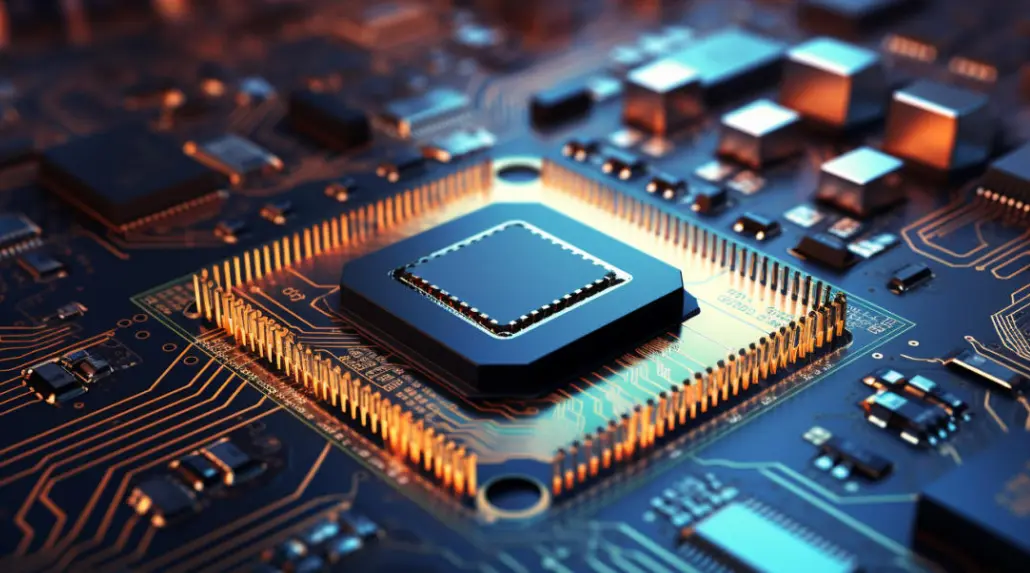Credo Technology Group Holding Ltd. (NASDAQ: CRDO) is a semiconductor manufacturer that produces high-end connectivity solutions. Credo was formed to satisfy the need for increased data transmission speed and concentrate on creating new products that reduce power loss while also facilitating fast and safe data connections for the corresponding markets. Their products also support artificial intelligence (AI), machine learning (ML), and data center operations. For
Products offered by Credo:
- HieWire Active Electrical Cables
- Optical Digital Signal Processors
- Serializer/Deserializer (SerDes) chiplets.
These products are essential in fulfilling the ever-growing demands in bandwidth propagation in today’s world surrounded by a digital economy. Some locations where these solutions can be deployed include the USA, China, and Taiwan.
It went public in January 2022 and has since reported tremendous revenue growth and business expansion. In the fiscal year 2024, Credo garnered around $193 million in revenue despite unfavorable market conditions. They are working on building research and development capabilities in the area of connectivity, mostly where there is high demand like in AI.
Benefits & loss to invest in this company
This Analysis will examine Credo Technology Group Holding Ltd. (CRDO) as an investment opportunity where consideration of both opportunities and risks is paramount. Here’s a breakdown:
Benefits of investing in Credo Technology Group
Strong Growth Potential: Credo has been in markets with ever-increasing demand for quick efficient transmission of data such as AI, machine learning, and data centers. The Company’s revenue in FY2024 grew by 4.76% with the forecasts continuing to remain strong Analysis
Innovative Product Line: The company’s Portfolio includes of HiWire Active Electrical Cables and SerDes chiplets for high-speed connectivity, therefore placing it into a strategically favorable position in the expanding semiconductor market. The rising expectations for eco-friendly technologies have also been met by the company’s attention to energy-efficient data transmission (
Positive Analyst Ratings: Due to CRDO’s strong products, penetrating activities, and forecasts, the analysts are rating the company as a “strong buy”. The increase in the stock price of the company is seen at 13.49%, and willingness from the investors is anticipated (
Expansion in AI and Data Centers: The AI revenue part of the company has also been growing quickly which is a major area of focus for the company. AI revenue of the company is expected to be 2 times by FY2025 owing to the increase in automation trends globally and the popularity of the cloud (
Risks and Drawbacks
Profitability Concerns: The company, though revenue grew in the company, reported a loss of $28.37 million in FY2024. Increased expenses are reflected in the financial results by showing a 71.4 % increase in losses as compared to the previous year’s implementation period. This demonstrates how intense competition continues to be.
Volatility in the Semiconductor Industry: The semiconductor industry is quite hyper-competitive and very vulnerable to changes in the supply chain and shifts in the markets. Due to changes in the industry, carefully assess the risk of the stock prices due to possible volatility.
Concentration Risk: A significant part of Credo company’s revenue is obtained from only a few of its customers, creating a potentially hazardous situation when such clients cut their demands or turn to other suppliers. In this case, this stock may not be sustainable in the long run, hence there is a need to broaden the customer base.
Who are CRDO’s competitors?
What other firms are attempting to sell products similar to those produced by CRDO?
Credo Technology Group (CRDO) is embroiled in the rapidly developing market of semiconductors including high-speed connection where it is bounded by few competitors:
1. Broadcom (AVGO): a prominent firm in the semiconductor package Broadcom Corporation provides most of the connectivity and data center solutions that have chips regarding networking storage broadband which is competitive with the high-speed data transfer by Credo products.
2. Marvell Technology (MRVL): Marvell is a market participant in data centers, cloud, and AI infrastructure and as such is in the business of the provision of semiconductors which is intended for data infrastructure networking and data storage.
3. NVIDIA (NVDA): Trends in the data technologies indicate that it is now possible to find NVIDIA shifting to even more cloud-centric data centers that draw Cognitive applications through leveraging Radeon-based data, thus making NVIDIA a competitor to Credo.
4. Intel (INTC): As Intel has earned a lot of capabilities in the domain of data centers and networks as well as their semiconductors designing and manufacturing, they also become a competitor in this space, especially solutions like Ethernet adapters and switches.
5. Macom Technology Solutions (MTSI): Macom designs and sells sophisticated analog RF microwave devices and photonic semiconductors and is aimed at most markets served by CREDO including data centers and telecommunications.
These companies, as well as other companies in the high-speed connectivity and semiconductor sectors, provide similar services in the more promising AI, cloud computing, and data infrastructure markets.
How these competitors are posing challenges to CRDO
How deep are the competitors of Credo Technology Group (CRDO) in places that matter?
1. Broadcom (AVGO)
• Position and Revenue Strength: In terms of products ranging from networking to broadband solutions, Broadcom occupies a critical position in the semiconductor industry. Very large players can afford aggressive policies and have extensive research and development resources, which may pose problems to the likes of Credo. Broadcom can also dominate in securing contracts due to its established customer base consisting of large tech companies.
• Design Integration: The breadth and depth of Broadcom’s ability to integrate its products with other products in systems, particularly those for networking, data center, and storage infrastructures, provide competition to the offerings of Credo by providing more holistic approaches to encompass a wider scope of customer issues and requirements
2. Marvell Technology (MRVL)
• Trends towards Data Infrastructure: High-speed networking, storage, and cloud computing which Marvell specializes in encroaches on the market targeting by Credo. By offering advanced compact chips targeting 5G, cloud computing and AI data centers, Marvell Technologies’ strengths from such markets threaten the market space of Credo Technologies.
• Matrix Going forward with its aggressive AI Strategy: In this setting, there is also a growing tendency towards AI which, for measures to compete, particularly puts pressure on Credo because there is a high potential for revenue growth for both firms with AI-related activities.
Marvell Technology also stands to benefit from the established relationship with the cloud giants as it positions them very competitively.
3. NVIDIA (NVDA)
• Relentless Growth of AI Hardware Sector: By acquiring Mellanox Technologies NVIDIA extended its capability in the area of data centers as well as high-speed connectivity hence becoming a direct competitor to Credo in this AI connectivity domain. The combination of NVIDIA’s competencies in GPUs and high-speed data networking puts it in a strong competitive position in AI and machine learning markets that are deemed as key growth drivers for Credo.
• Management of Ecosystem: For companies looking for full solutions – artificial intelligence – NVIDIA provides hardware, software, and networks to its customers. This may result in pulling customers from Credo that looks to incorporate only high-speed and dedicated connectivity components(Stock Analysis).





